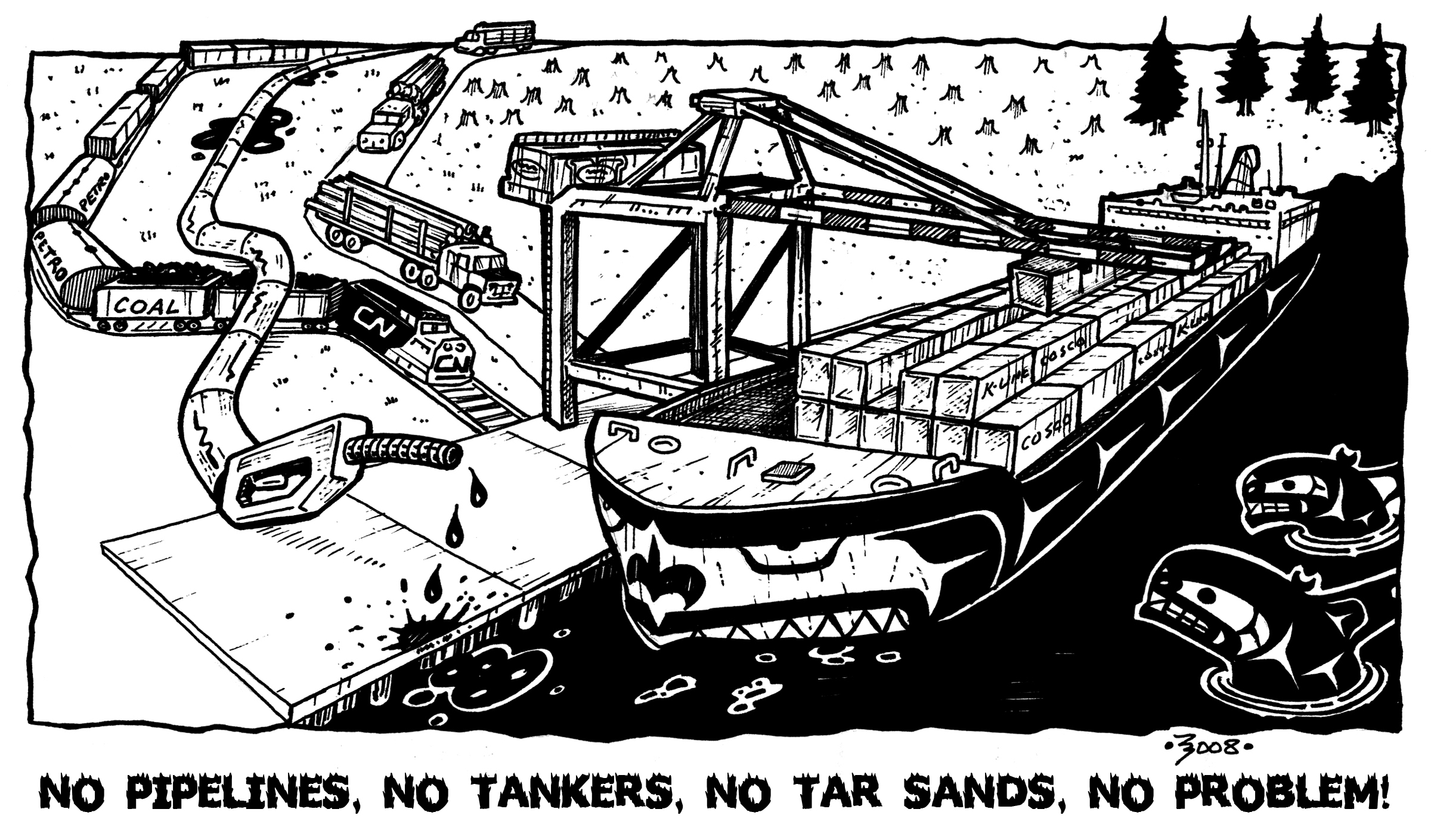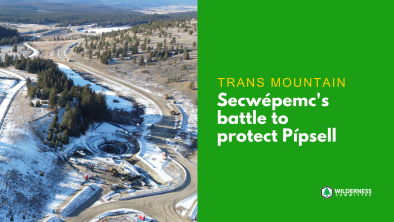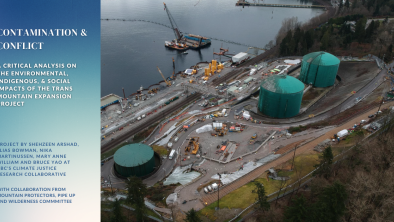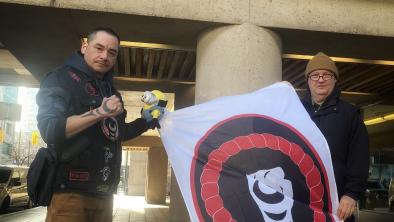Harsha Walia: First Nations fight tar sands pipelines
Straight.com

The past few months saw high-profile civil disobedience from Washington, D.C., to Ottawa against the Alberta tar sands and TransCanada’s Keystone XL pipeline. Canada is currently the largest supplier of crude oil to the U.S., and the Canadian Association of Petroleum Producers is pushing to double Canada’s production during the next decade.
According to Ben West of the Wilderness Committee: “We can point fingers at Alberta, but the truth is that British Columbia is vying for power as a fossil-fuel exporter. Successive provincial and national governments have pushed B.C. towards the Pacific Gateway Corridor Initiative. People may not know it, but our province and our city are of strategic importance for tar-sands expansion, particularly through the Enbridge pipeline and the Kinder Morgan pipeline.”
The $5.5-billion proposed Enbridge Northern Gateway Pipeline would carry petroleum product from Alberta to Kitimat, B.C., to be shipped to international markets. This would enable an estimated 30-percent increase in tar-sands production. With newly constructed tanker ports bringing supertankers and crude-oil tanker traffic into northern waters, many fear a repeat of the 1989 Exxon Valdez disaster in Alaska. The Enbridge pipeline carrying 700,000 barrels per day of crude oil and toxic hydrocarbons would cross more than 1,000 rivers and streams, including the headwaters of the Fraser and Skeena rivers and salmon-spawning sites. Even the Union of British Columbia Municipalities has voted against the pipeline and coastal tanker traffic.
The proposed pipeline would also traverse the territories of more than 60 First Nations communities. West of the Rockies, most of the land remains unceded, as there are few signed treaties. Aboriginal title continues to be affirmed by First Nations and has been upheld by the Supreme Court of Canada. Although Enbridge claims to have working protocols with some First Nations bands, not one has publicly affirmed support. Rather, quite the opposite. The Save the Fraser Gathering of Nations declaration was signed by 61 indigenous communities in December 2010: “We will not allow the proposed Enbridge Northern Gateway pipelines, or similar Tar Sands projects, to cross our lands, territories and watersheds, or the ocean migration routes of Fraser River salmon.”
Members of the Wet’suwet’en Nation, for example, have issued a formal trespass notice to Enbridge. I spoke with one of them, Mel Bazil, during the first Indigenous Assembly Against Mining and Pipelines held in the B.C. Interior in September. According to Bazil: “We will not allow Enbridge to operate on our territory. There are other pipeline companies also attempting to come onto our territories and threaten our ways of life. The Pacific Trails natural-gas pipeline, in particular, is coming up much faster and is essentially the breaking ground for future pipelines. Enbridge is actually using the fact that Pacific Trails is proposing the same right of way as Enbridge to mitigate their ecological footprint on our territory. ”
Closer to home, the Kinder Morgan–operated Trans Mountain Pipeline carries 300,000 barrels per day from Alberta to B.C. as well as to Washington state. Kinder Morgan’s current expansion proposal will facilitate transport of tar-sands crude to both international (Asian) markets through increased tanker traffic out of the Lower Mainland as well as bring tar-sands bitumen into the U.S. through refineries in Washington state. Specifically, the expansion proposal would increase capacity in the pipeline by more than 50 percent and also allow supertankers with one-million-barrel capacity in the Burrard Inlet. This is an overall tanker capacity that is at least 65 percent more than what Enbridge is proposing. Yet there has been little attention paid to Trans Mountain, which already has an existing right of way.
Of the 18 legal interveners in Kinder Morgan’s application to the National Energy Board, 17 are oil companies and one is the Alberta government. This despite the fact that Kinder Morgan is a poster child for pipeline problems. Just to name a few: a Kinder Morgan gasoline pipeline ruptured in Arizona in 2002; an explosion of one its pipelines in California in 2004 killed five workers; a Kinder Morgan pipeline rupture led to 200,000 litres of crude oil gushing through Burnaby in 2007; and in 2008 the company agreed to settle a felony charge by entering a plea to a criminal violation of the U.S. Ocean Dumping Act in 2003.
When asked at the Indigenous Assembly Against Mining and Pipelines why he thought there were different levels of opposition to various pipelines, hereditary chief Toghestiy Wet’suwet’en said: “Pipelines are the poison of the land, but many corporations are using the language of ‘green’ to trick and co-opt environmental organizations.”
In light of global actions taking place under the banner of the Occupy Together movement, this seems like a particularly poignant message.
Harsha Walia is a Vancouver-based social-justice activist and researcher with the group No One Is Illegal, which supports the Indigenous Assembly Against Mining and Pipelines.


